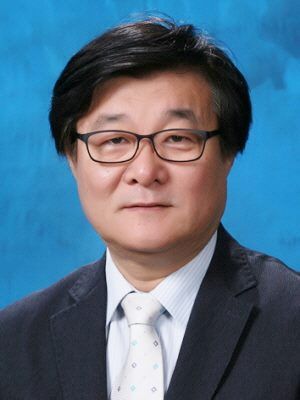
Short biography:
Jeong-Gyu Kim is currently a Professor at the Division of Environmental Science and Ecological Engineering, Korea University. He is the director of OJERI and the Wild Resource Plants Seed Bank of KU. He received a Ph.D. in 1988 on soil science and plant nutrition at Korea University. He served as a senior researcher on plant stress physiology at the National Institute of Environmental Research (NIER) from 1989 until 1994. During his days at the NIER, he established a National Bio-indicator System for air pollution and a guideline of plant selecting system for phyto-remediaton at urban and industrial areas. He departed to the National Institute for Environmental Study (NIES), Japan in 1990, to study on the water quality management. He moved to Korea University in 1994, to become an assistant professor of environmental botany at the Korea University, in 1995 associated professor, and in 2000 full professor.
His research interests include the effects of environmental pollution on plants, phytoremediation for polluted soils, the characteristics of soils, the reduction of non-point pollution using ecological engineering concepts, the fate of pollutants in ecosystems, the assessment of environmental capacity, and resilience of ecosystems, currently. He published over 110 peer reviewed articles and 6 books and has 7 patents.
Kim also served as the secretary general of the 20th World Congress of Soil Science (20WCSS) from 2010 to 2014, the president of the Korean Society of Soil Science and Fertilizers (KSSSF) in 2013, and a Dean of the college of Life Sciences and Biotechnology and the Graduate School of Life and Environmental Sciences at Korea University from 2009 to 2011.
Abstract:
This century humanity’s impending problem is represented by the natural changes of huge proportions caused by global warming and human activities that ultimately threaten the quality of life in the future. The research about the impact of human activities on the resilience of the ecosystem on the regional and global scales is still in its very first stages because of the complexity of its subject. Understanding ecosystem resilience is a central concept of Korea University’s founding philosophy and corresponds with humanity’s ideal of improving the quality of life and using a limited amount of natural resources. Korea University’s OJeong Eco-Resilience Institute through its fundamental and applied research on ecosystem(OJERI) resilience is prepared to contribute to the attainment of a sustainable society. The vision and mission of OJERI will be addressed
Arranged date for the seminar talk: Aug 25, 2017 in Foredragssalen, GFI at 13:00
